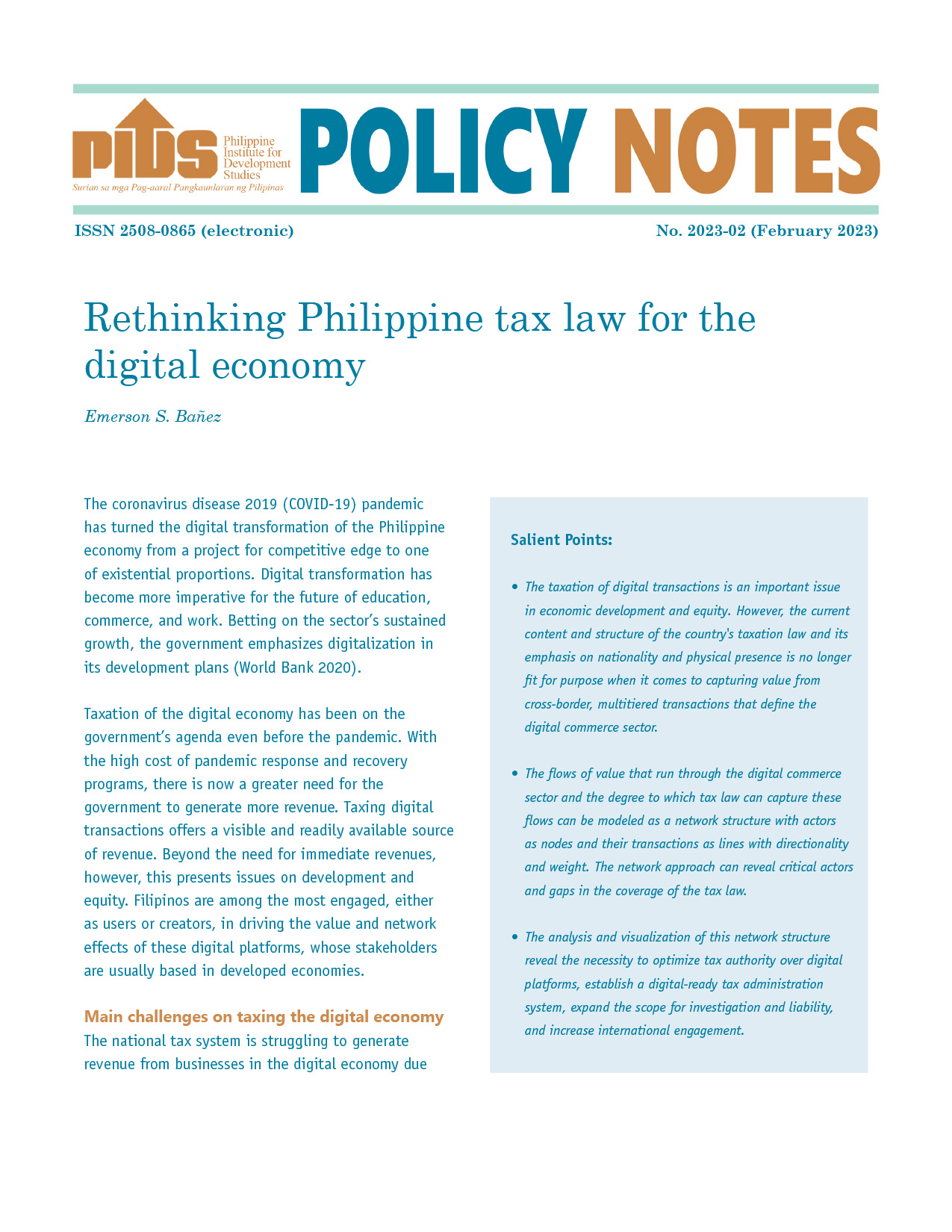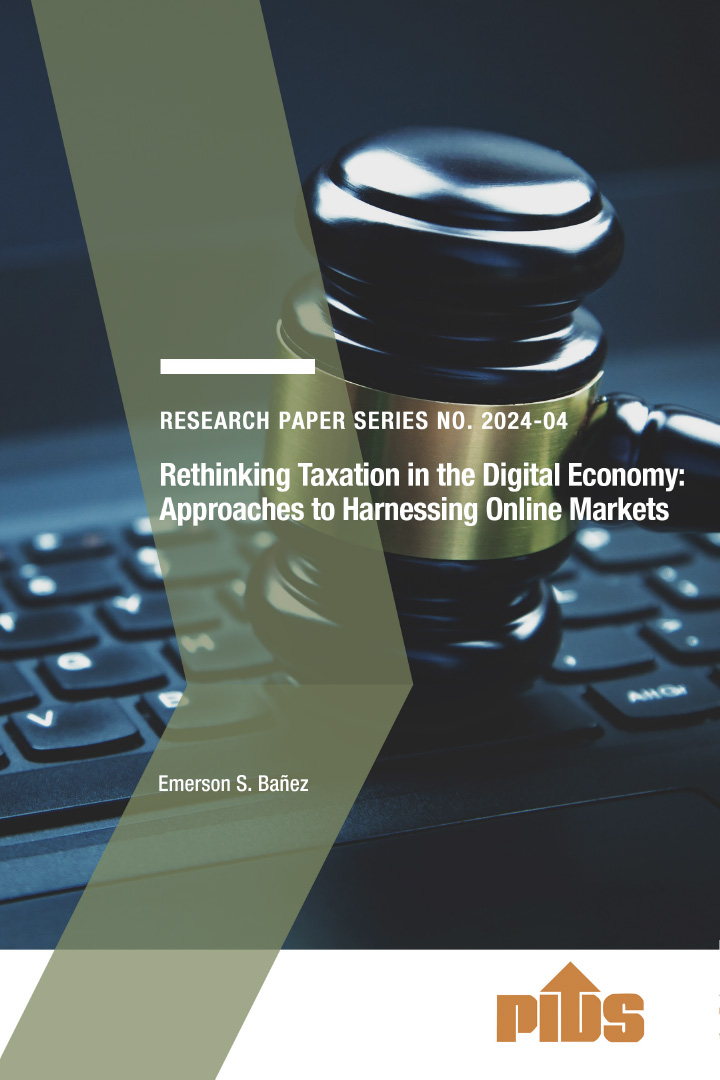TAX administrators need to adapt to digital platform use by their taxpayers to enhance their ability to capture revenue, the Philippine Institute for Development Studies (PIDS) said.
“In a virtual cross-border world, the effectiveness of existing tax measures is limited. The ease through which online accounts can be set up and deployed as digital storefronts, often anonymously by users operating from homes, which are not tax-mapped, and through platforms that operate abroad, limits the Bureau of Internal Revenue’s (BIR) enforcement powers,” PIDS consultant and assistant professor at the University of the Philippines College of Law Emerson S. Bañez said in a statement.
Mr. Bañez said that the current tax system was “developed for bricks-and-mortar or traditional businesses with a physical location.”
“This is not wholly applicable to e-commerce as not all digital businesses have physical stores or offices where they sell their goods and services and where the same is consumed,” he said.
Tax Management Association of the Philippines President Suzette A. Celicious-Sy noted that no laws currently govern foreign businesses that provide digital goods and services in the Philippines.
A bill that seeks to impose a value-added tax on digital service providers is currently pending in the Senate at committee level.
If signed into law, it is expected to generate up to P18.2 billion in revenue by 2028.
“There are provisions in the bill that might be difficult to enforce, such as requiring nonresident digital service providers to designate a representative office or agent and suspend business operations for failure to register as taxpayers in the Philippines,” Ms. Celicious-Sy said.
“Overall, there needs to be a law to govern the taxation of nonresident foreign corporations and capture allocated taxes for income sourced within the Philippines,” she added.
Mr. Bañez recommended using payment systems and platforms as withholding agents.
The government’s tax administration efforts must also be digital-ready through “procuring the right technology, hiring individuals with the right skills, and reskilling the tax workforce.”
The BIR recently announced that it is looking into a proposed creditable withholding tax on the income payments made by online platform providers to their partner sellers.












